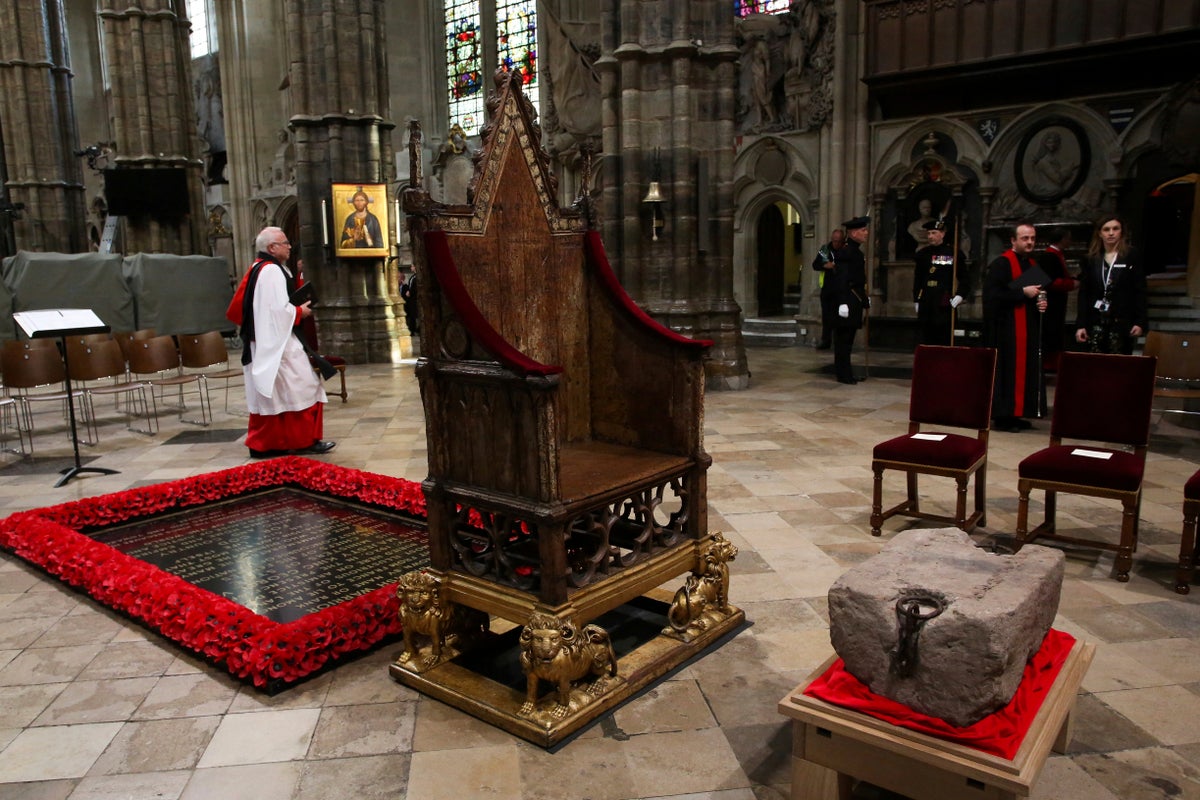
It will be a coronation of many faiths and many languages.
King Charles III, keen to show that he can be a unifying figure for everyone in the United Kingdom, will be crowned in a ceremony that will for the first time include the active participation of faiths other than the Church of England.
Buddhist, Hindu, Jewish, Muslim and Sikh leaders will take part in various aspects of the coronation, the Archbishop of Canterbury’s office said Saturday, as it revealed details of a service it described as an act of Christian worship that will reflect contemporary society.
The ceremony also will include female bishops for the first time, as well as hymns and prayers sung in Welsh, Scottish Gaelic and Irish Gaelic, as well as English.
“The service contains new elements that reflect the diversity of our contemporary society,’’ Archbishop Justin Welby, spiritual leader of the Church of England, said in a statement. “It is my prayer that all who share in this service, whether they are of faith or no faith, will find ancient wisdom and new hope that brings inspiration and joy.”
The coronation ceremony reflects Charles’ efforts to show that the 1,000-year-old monarchy is still relevant in a country that is much more diverse than it was when his mother was crowned 70 years ago. While the king is the supreme governor of the Church of England, the latest census showed that less than half of the population now describe themselves as Christian.
Built around the theme “Called to Serve,” the coronation service will begin with one of the youngest members of the congregation — a Chapel Royal chorister — greeting the king. Charles will respond by saying, “In His name and after His example, I come not to be served but to serve.”
The moment is meant to underscore the importance of young people in the world today, according to Lambeth Palace, the home of the Archbishop of Canterbury.
The service will also include many historic elements underscoring the ancient traditions through which power has been passed on to new kings and queens throughout the centuries.
In the most sacred part of the service, the Archbishop of Canterbury will anoint the king with oil, consecrating him and setting him apart from his subjects.
A screen will cover Charles at this moment, and the anointing won’t be visible on television or to most people in the abbey, except for a few senior members of the clergy.
“When the screen which will surround the coronation chair is removed, the king is revealed to us all as someone who has taken on the responsibility of serving God and serving the people,” a Lambeth Palace spokesperson said while speaking on customary condition of anonymity.
This will be followed by the presentation of the coronation regalia, sacred objects like the orb and scepter that symbolize the monarch’s power and responsibilities.
In another innovation that reflects the changed religious landscape in Britain, members of the House of Lords from the Hindu, Jewish, Muslim and Sikh traditions will present the king with objects with no explicit Christian symbolism.
The new king will then be crowned and the refrain “God Save the King’’ will echo through the Abbey.
After Charles is crowned, the traditional homage of the peers will be replaced by an “homage of the people,” in which people in the Abbey and those watching on television will be invited to affirm their allegiance to the king.
Camilla will then be anointed, in a form similar to that of Queen Elizabeth, the queen mother, in 1937. However, Camilla’s anointing won't be hidden behind a screen.
The congregation will also be invited to say the Lord's Prayer' in the language of their choice.
Just before Charles sets off in the Gold State Coach for a procession on the streets of London, the leaders and representatives of faith communities will deliver a greeting in unison. The greeting won’t be amplified out of respect for those who are observing the Jewish sabbath and are barred from using electrical devices, Lambeth Palace said.







